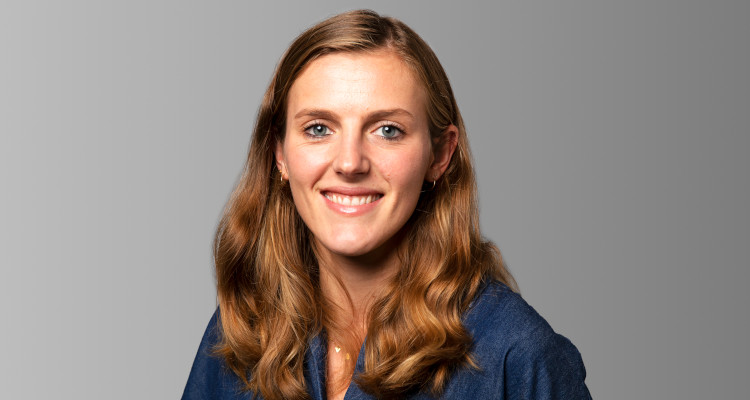Pia Pannatier
Getting to know the doctoral candidates of the Geneva School of Economics and Management. Today, GSEM Ph.D. student Pia Pannetier from the Institute of Economics and Econometrics tells us more about her research.

Full name and Nationality?
Pia Pannatier, German.
Academic background?
- BA in Economics, Management and Languages, with French and Spanish and a specialization in Economics
- MSc in Economics
Program and Specialization?
I am completing a Ph.D. in Economics, with a specialization in migration and labor market economics. My current project is on the "Effects of Forced Displacement on Inequalities over the Life-cycle", with Prof. Tobias Müller.
What stage of your Ph.D. are you in?
I have finished my third year and am currently on maternity leave.
Why did you choose to study for your Ph.D. at the GSEM?
I wanted to study abroad for my Masters and completed my Master's degree in Geneva. When the opportunity to do a Ph.D. in Geneva came up, I took it. I really like the atmosphere, the small department, the very approachable professors, and the collaborative environment. In addition, my husband works in Geneva.
What is your Ph.D. about, and why did you choose your research topic?
My Ph.D. is about the economics of migration. For one of my projects, I am studying the effect of the opening of the labor market for cross-border workers on natives' education choices. In my second project, my co-authors and I are looking into forced displacement in Switzerland and studying the resulting inequalities for refugees in Switzerland. I chose this topic because it is of huge importance, and migration and forced displacement are becoming increasingly urgent matters. With wars and climate change, many countries will have to face the issue of migration and efficient integration is crucial.
What is innovative about your research?
With a unique longitudinal dataset of administrative records and social security data for refugees in Switzerland from 1998 to 2018, we are able to reconstruct the individual-level trajectories of refugees and follow them over the life cycle from arrival. What is new compared to existing studies is that we have a much longer time frame. We can follow the same individuals over the course of 20 years. This allows us to examine the pattern of economic integration and how it changes over time in the short, medium, and long run.
What is one thing that you have enjoyed the most during your Ph.D.? What is, or has been, the most challenging part?
I enjoyed the collaborative environment with my colleagues and the many possibilities to present work and get feedback. Even during COVID-19 we continued to get together whenever possible to keep in touch and exchange ideas and knowledge. The support of my supervisor and the work we did together helped me grow a lot.
The most challenging part was the period when we were all working from home. For research, regular exchanges are indispensable and even though there were some opportunities online, meeting someone in the corridor and having an informal discussion was a missing piece for me.
Do you have any advice for someone considering a Ph.D.?
Do it in a place where you can rely on people's support and choose a topic that you are passionate about because a Ph.D. can be a lonely experience, and sometimes and you have to be able to motivate yourself and to work on your own.
Tell us something fun about yourself.
I’m a Christmas fanatic!
Getting to know the participants of the GSEM doctoral programs




